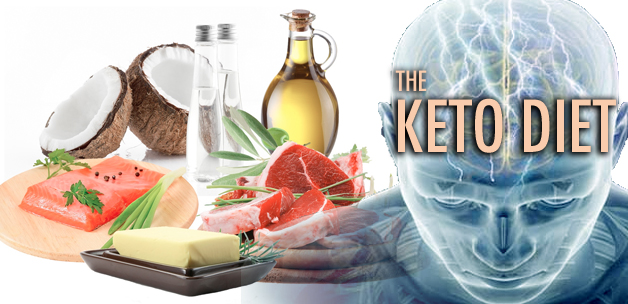Fad Diet Facts (The Ketogenic Diet)
What you need to know about the keto diet
The ketogenic diet is a high-fat, adequate-protein, low-carbohydrate diet . The diet forces the body to burn fats rather than carbohydrates. Normally, the carbohydrates contained in food are converted into glucose, which is then transported around the body and is particularly important in fueling brain-function. However, if there is very little carbohydrate in the diet, the liver converts fat into fatty acids and ketone bodies. The ketone bodies pass into the brain and replace glucose as an energy source.
Many people swear this diet gives them miraculous results through it's ability to utilize fat to create energy instead of carbs.
Some important things to consider
- The weight loss results you see from a keto diet will be more of a result of the caloric deficit than the actual ketosis you are putting your body in
- There is a long list of foods you can't eat in order to maintain ketosis
- There can be some danger of placing yourself in keto-acidosis
- There are three key elements when implementing a ketogenic diet.
1. Eating few enough carbohydrates to put the body into ketosis.
2. Eating enough fat to make up the calories lost from not eating carbs.
3. Eating enough protein to maintain your muscles and body structures.
As with any diet there are both pros and cons
Pros
- Lets you continue to consume fat filled foods while losing weight
- Reduction of seizures in people with epilepsy
- Probably provides benefits in people with metabolic diseases
Cons
- Ketosis can have little to no benefit for certain people depending on genetic factors
- Limiting carbohydrate intake can limit your cognitive abilities, and you ability to perform anaerobic activity
- No carbohydrate intake can be hard to sustain for some individuals
- Eating a diet consistently high in saturated fats can have implications in long-term cardiovascular health
Conclusion
While the keto diet can be used effectively, it's important to keep in mind that you won't see any "magical" results. It can be difficult to consistently eat such a small amount of carbohydrates, and it can hamper your ability to perform difficult physical activity. The reality is that you won't magically burn your body fat any faster or lose your weight any faster as a result of this diet. It is one of many ways to accomplish these things If the negatives to this diet don't seem like they would really bother you it can definitely be worth it to give it a shot.
Further Reading
https://www.ncbi.nlm.nih.gov/pmc/articles/PMC524027/
http://www.precisionnutrition.com/ketogenic-diet
As always thank you so much for reading and feel free to let me know your thoughts down below. I love to know what you guys think!


This post received a 2.11% upvote from @randowhale thanks to @kylek717! To learn more, check out @randowhale 101 - Everything You Need to Know!
So go ahead and eat a high carb diet.
we'll see what happens.
I already do, Im competing in the national championships for powerlifting and am in the best shape of my life.
What did you think was going to happen?
oh...I dunno..what normally happens when you overload the pancreas too much for too long?
I dont know if you know how physiology works, but eating carbohydrates does not overload ones pancreas. It was designed to handle them.
What exactly are you suggesting?
odd that...my diabetes doctor told me other wise just yesterday..
of course she's just a doctor specializing in diabetics..
It's unlikely that she would know as much about pshysiology as a weightlifter.
I bow to your greater expertise.
If a person has diabetes the physiology is different, but if a doctor told you that insulin secreted by your pancreas does not allow glucose to be absorbed by your cells they should not be a doctor.
I'll tell her you said that next checkup.
If you'd like to have an actual discussion you could make an actual assertion istead of attempting to be as annoying as possible
Hiding behind the support of well my doctor said something so im automatically an expert. I dont claim to be a nutritional science expert, but it by no means takes an expert to know how your body handles the ingestion of carbohydrates. I dont even know what the point of your comments is besides to troll.